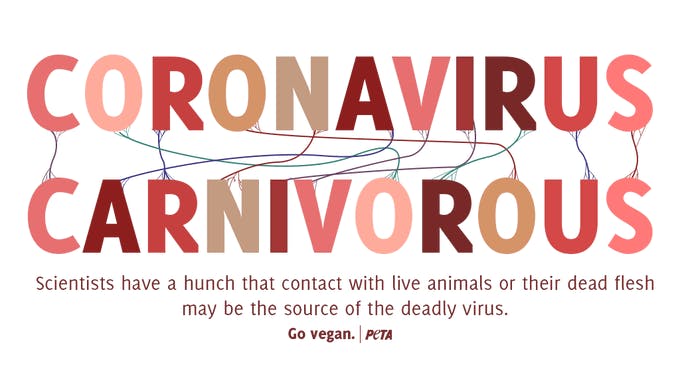The coronavirus pandemic has presented businesses with a devilishly difficult question to answer: what’s our Covid-19 corporate social responsibility strategy, and how can we avoid looking like we’re exploiting a crisis that is on the front page of every newspaper?
To continue reading, subscribe to Eco‑Business.
There's something for everyone. We offer a range of subscription plans.
- Access our stories and receive our Insights Weekly newsletter with the free EB Member plan.
- Unlock unlimited access to our content and archive with EB Circle.
- Publish your content with EB Premium.
Businesses from every conceivable sector, from e-commerce to pulp and paper, have been featured in the news media helping to combat a pathogen that, at the time of publishing, has killed more than 42,000 people since it emerged from the Chinese city of Wuhan at the end of last year.
China’s internet titans were among the first. Alibaba waived service fees and offered loans for struggling online merchants, delivery app Meituan gave medical staff free meals and free rides, and JD.com gave counselling services for the quarantined.
Then companies started making stuff they don’t normally make in response to a surge in demand for medical supplies. Automaker BYD began manufacturing disinfectant, and iPhone maker Foxconn pivoted to face mask production.
As the virus has spread, so has the corporate love.
“
99 per cent of what needs to be said, has been said. We know you “care”, we understand you are “committed” and that you are “by our side”. Find a different angle. Please.
Charles Lankester, executive vice-president, global reputation and risk management practice, Ruder Finn
Gap used its garment factories to make gowns and scrubs. Crocs donated its shoes to healthcare workers. Burger King dished out burgers to nurses. Unilever gave away soap. Dyson designed a new type of ventilator. Asia Pulp and Paper, rather than give away a product that has been stripped from supermarket shelves by panic buyers—toilet rolls—handed out free hand sanitiser.
The outpouring of corporate generosity has shown that capitalism may have a heart. But there have been some CSR faux pas to remind us that business can be more attuned to seizing a marketing opportunity than helping those in need. There’s been a lot of talk, with little substance.
McDonald’s was rightly hammered for a social media marketing campaign (pictured, above) that separated the famous golden arches of its logo in a supposed show of solidarity with people practising social distancing in Brazil. As Democrat candidate Bernie Sanders suggested on Twitter, it might have been a better idea for the fast food chain to give its workers paid sick leave than get cute with its logo. McDonald’s later removed the image from social media.

This social media post by Jeep was accompanied with the tagline “The great indoors” to support people working from home in Australia. Image: Jeep Australia Instagram
A few days ago, four-wheel drive brand Jeep made its iconic front grill out of various household objects in a social media stunt to show support for people quarantined at home, which looked suspiciously like an entry for an advertising awards show.
Even big tobacco has dared to venture into the coronavirus conversation. The head of communications for Philip Morris, Marian Salzman, wrote a piece on LinkedIn in which she opined how the virus was, despite social distancing, bringing a divided society back together. Cue the inevitable backlash. One poster wrote: “This is crisis-washing. I am sure there have been endless conference calls and strategies for how to communicate during the crisis. The simple answer is don’t. Nobody should be hearing from a company that spent more than a century infecting the world’s lungs.”
It’s not just large multinationals that have rushed into the coronavirus discourse. Hardline animal rights group People for the Ethical Treatment of Animals (Peta) got more than it bargained for when it pointed out in social media that coronavirus is an anagram for carnivorous. “Coincidence? We think not,” read the tweet, which pointed out that the virus started in a wildlife market.

Peta’s coronavirus-carnivorous anagram tweet from February. Image: Peta’s Twitter
The post was widely trolled, with many commenters pointing out that Peta is an anagram for pâté and is an acronym that many people think stands for “People Eat Tasty Animals”.
So what should companies be doing in a time of coronavirus, and how should they be communicating their CSR efforts? Charles Lankester, executive vice-president, risk management, for public relations firm Ruder Finn, told Eco-Business that brands should first think about whether the best course of action is to say anything at all.
“99 per cent of what needs to be said, has been said. We know you ‘care’, we understand you are ‘committed’ and that you are ‘by our side’. Find a different angle. Please,” he said.
Brands need to make sure that there is value being added in coronavirus-related communications. “If they are offering advice, they need to ask what can genuinely make a difference,” said Lankester. He used Prince Harry and Meghan Markle’s attempt to show appreciation for the UK’s struggling health service by posting clapping emojis on Instagram as an example of how to get it wrong.
With the soon-to-be-former royals’ “tone deaf” post in mind, Lankester has shared the dos and don’ts of Covid-era CSR comms.
Do:
- Ask yourself, why are we really doing this? What is the motivational push for whatever it is we are doing? If you are sure of the why, then you won’t go too far wrong.
- Identify the things that those important to you need – and then provide them. Deliver practical, real help to improve people’s lives.
- Make sure your employees are briefed and can share details of the initiative if they choose.
Don’t:
- Ever, ever think of sales as an outcome for whatever it is you are doing or offering. This is not the time. If you get sales, great, but your contribution should be bigger than that.
- Ignore dumb things other firms have done – research, assess and make sure your ideas stand up to scrutiny.
- Forget to scenario plan. If we do X, what are the positive and negative consequences? What’s the worst that could happen?















